Click to read the article in Turkish
Human Rights Watch (HRW) has published its World Report 2021.
The report's chapter specifically focusing on Turkey has noted that "the assault on human rights and the rule of law presided over by Turkey's President Recep Tayyip Erdoğan continued during the Covid-19 pandemic."
"The president's Justice and Development Party (AKP) and an allied far-right party enjoy a parliamentary majority enabling them to consolidate authoritarian rule by passing rushed legislation that contravenes international human rights obligations," the report has noted and briefly added:
Opposition parties remain sidelined under Turkey's presidential system and the government has reshaped public and state institutions to remove checks on power and to ensure benefits for its own supporters. Executive interference in the judiciary and in prosecutorial decisions are entrenched problems, reflected in the authorities' systematic practice of detaining, prosecuting, and convicting on bogus and overbroad terrorism and other charges, individuals the Erdoğan government regards as critics or political opponents.
Some of the main findings in the report are as follows:
Media
* Most TV and print media in Turkey are owned by companies close to the Erdoğan presidency or avoid reporting critical of the government. Critical online news and commentary websites persist, nevertheless.
* At the time of writing, an estimated 87 journalists and media workers were in pretrial detention or serving sentences for terrorism offenses because of their journalistic work.
CLICK - BIA Media Monitoring Reports
Social media
* Plans for strict regulation of social media companies in Turkey were made law in July after President Erdoğan used the example of insults against his family on social media to justify a need for stricter regulation.
* Under the new law, social media companies with over one million users a day will be required to have offices in Turkey and comply with government demands to block and remove content or else face very heavy fines. Companies that do not open an office will be fined and eventually have their bandwidth restricted, rendering the platform unusable. At time of writing, Facebook had indicated it would not comply with the law.
* While Turkey in January lifted a blocking order on Wikipedia in place since April 2017, authorities continue to block thousands of websites, including critical news websites, and order the removal of online content.
* Thousands of people face arrest and prosecution for their social media posts, typically charged with defamation, insulting the president, or spreading terrorist propaganda. In the context of Covid-19, the Interior Ministry announced that hundreds of people were under criminal investigation or detained by police for social media postings deemed to "create fear and panic" about the pandemic. Some of these postings included criticism of the government's response to the pandemic.
Media authority RTÜK
* Turkey's official media regulation authority, the Radio and Television Supreme Board (RTÜK), ordered arbitrary fines and temporary suspensions of broadcasting of media outlets such as Halk TV, Tele 1 TV, and Fox TV, which include content critical of the government.
* Netflix complied with RTÜK's April demand that it remove an episode of TV drama series Designated Survivor on the grounds that it offered a negative portrayal of President Erdoğan, as well as in July canceling filming in Turkey of a new Turkish drama after RTÜK requested the removal of a gay character from the script.
Freedom of assembly
* Selectively using Covid-19 as a pretext, provincial governors banned peaceful protests of women's rights activists, healthcare workers, lawyers, and political opposition parties.
Imprisonment of Kavala
* In February, an Istanbul court acquitted rights defender Osman Kavala and nine others of "attempting to overthrow the government by force and violence" in connection with the 2013 mass protests which began in Gezi Park. However, hours after his acquittal another court ordered Kavala's detention in the scope of an investigation into his alleged role in the July 2016 attempted coup. In October, the investigation culminated in another bogus indictment accusing Kavala and US academic Henri Barkey of attempting to overthrow the constitutional order and espionage.
* Kavala has been detained since November 2017, with Turkey flouting a European Court of Human Rights' judgment ordering his release on the grounds that his detention has been pursued for political aims.
Büyükada trial
* In July, in a case against human rights defenders detained in 2017 while they attended a training workshop, an Istanbul court convicted Taner Kılıç, Amnesty International Turkey's honorary chair, on charges of membership of a terrorist organization to over six years in prison. İdil Eser, Amnesty Turkey's former director, and rights defenders Özlem Dalkıran and Günal Kurşun received sentences of 25 months on charges of aiding a terrorist organization, and 7 others, 2 of them foreign nationals, were acquitted. All are at liberty and the case is under appeal.
CLICK - Four people sentenced to prison, seven people acquitted in Büyükada trial
LGBTI+s
* The government's restrictive approach to the public activities of lesbian, gay, bisexual, and transgender (LGBT) rights groups continued with the banning of events including Pride marches for a sixth year running and homophobic speeches by senior state officials.
Multiple bars and lawyers
* The government in July passed a new law to reduce the institutional strength of Turkey's largest bar associations, which have strongly criticized Turkey's backsliding on human rights and the rule of law.
* Defense lawyers representing defendants in terrorism prosecutions have faced arrest and prosecution on the same charges as their clients.
* In September, the Court of Cassation upheld the conviction of 14 out of 18 lawyers for links with an outlawed leftist organization. One of the lawyers, Ebru Timtik, died on August 27 after a prolonged hunger strike in demand of a fair trial.
Male violence
* Femicide and domestic abuse are significant problems in Turkey. While official disaggregated data on numbers are not available, women's rights groups have reported that hundreds of women are killed annually as a result of domestic violence. Conservative groups and some government officials suggested Turkey may withdraw from the Council of Europe Convention on Preventing and Combatting Violence against Women and Domestic Violence (the Istanbul Convention), which Turkey was among the first to ratify in 2014.
CLICK - bianet is Monitoring Male Violence
Torture and ill treatment
* A rise in allegations of torture, ill-treatment, and cruel and inhuman or degrading treatment in police and military custody and prison over the past four years has set back Turkey's earlier progress in this area.
* Those targeted include people accused of political and common crimes. Prosecutors do not conduct meaningful investigations into such allegations and there is a pervasive culture of impunity for members of the security forces and public officials implicated.
Abductions and disappearances
* There have been no effective investigations into the around two dozen reported cases of enforced disappearance over the past four years.
* In February and June 2020, two men out of six who resurfaced in police custody in Ankara months after disappearing in February 2019, stated in court hearings that they had been abducted, tortured, and forced to sign statements confessing to links with the Gülen movement.
HDP and Demirtaş
* The Erdoğan government refuses to distinguish between the PKK and the democratically elected Peoples' Democratic Party (HDP) which won 11.7 percent of the national vote in the 2018 parliamentary elections and 65 local municipalities in the 2019 local elections. Former party co-chairs Selahattin Demirtaş and Figen Yüksekdağ have been in detention since November 2016.
* Turkey has refused to comply with a 2020 European Court of Human Rights ruling that Demirtaş should be immediately released.
Trustees
* Since August 2019, the Interior Ministry has justified the removal of 48 elected Peoples' Democratic Party (HDP) mayors on the basis that they face criminal investigations and prosecutions for links with the PKK.
* Repeating the approach taken in 2016-17, the government has replaced mayors in the southeast with Ankara-appointed provincial governors and deputy governor "trustees."
* At time of writing, 19 mayors remain in pretrial detention. In March, a Diyarbakır court sentenced Adnan Selçuk Mızraklı, the dismissed mayor of Diyarbakır Metropolitan Municipality, to over nine years in prison based on a witness statement accusing him of links with the PKK. The case is under appeal.
* In October, an Ankara court ruled for the pretrial detention of Kars mayor, Ayhan Bilgen, and 16 other HDP officials, in connection with an investigation into their alleged role in 2014 protests.
Revoke of parliamentary seats
* In June, the Turkish parliament revoked the parliamentary seats of two HDP deputies, Leyla Güven and Musa Farisoğulları, on the grounds that the Court of Cassation had upheld convictions against them for membership in a terrorist organization, and Enis Berberoğlu, a deputy from the main opposition Republican People's Party, for revealing state secrets by sharing video footage of trucks of weapons being transferred to Syria with Cumhuriyet newspaper.
Canan Kaftancıoğlu
* In June, an Istanbul appeal court upheld the conviction of Canan Kaftancıoğlu, Istanbul chair of People's Republican Party (CHP), to nearly 10 years in prison for tweets she made years ago. A further appeal is underway. (EKN/SD)
* Click here to read the full chapter on Turkey in English





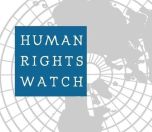
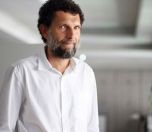
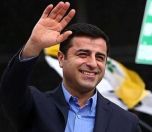
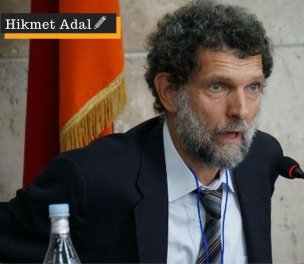

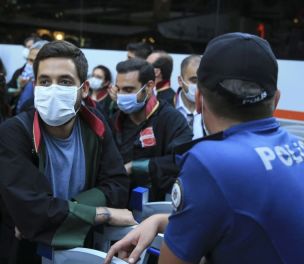
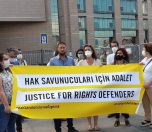
-132.jpg)